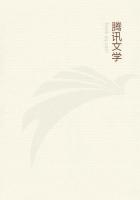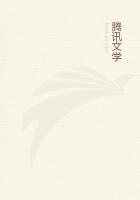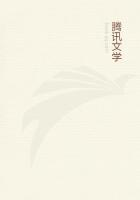Heaven sometimes hedges a rare character about with ungainliness and odium, as the burr that protects the fruit. If there is any great and good thing in store for you, it will not come at the first or the second call, nor in the shape of fashion, ease, and city drawing-rooms. Popularity is for dolls. "Steep and craggy," said Porphyry, "is the path of the gods." Open your Marcus Antoninus. In the opinion of the ancients, he was the great man who scorned to shine, and who contested the frowns of fortune. They preferred the noble vessel too late for the tide, contending with winds and waves, dismantled and unrigged, to her companion borne into harbor with colors flying and guns firing. There is none of the social goods that may not be purchased too dear, and mere amiableness must not take rank with high aims and self-subsistency.
Bettine replies to Goethe's mother, who chides her disregard of dress, -- "If I cannot do as I have a mind, in our poor Frankfort, Ishall not carry things far." And the youth must rate at its true mark the inconceivable levity of local opinion. The longer we live, the more we must endure the elementary existence of men and women; and every brave heart must treat society as a child, and never allow it to dictate.
"All that class of the severe and restrictive virtues," said Burke, "are almost too costly for humanity." Who wishes to be severe?
Who wishes to resist the eminent and polite, in behalf of the poor, and low, and impolite? and who that dares do it, can keep his temper sweet, his frolic spirits? The high virtues are not debonair, but have their redress in being illustrious at last. What forests of laurel we bring, and the tears of mankind, to those who stood firm against the opinion of their contemporaries! The measure of a master is his success in bringing all men round to his opinion twenty years later.
Let me say here, that culture cannot begin too early. In talking with scholars, I observe that they lost on ruder companions those years of boyhood which alone could give imaginative literature a religious and infinite quality in their esteem. I find, too, that the chance for appreciation is much increased by being the son of an appreciator, and that these boys who now grow up are caught not only years too late, but two or three births too late, to make the best scholars of. And I think it a presentable motive to a scholar, that, as, in an old community, a well-born proprietor is usually found, after the first heats of youth, to be a careful husband, and to feel a habitual desire that the estate shall suffer no harm by his administration, but shall be delivered down to the next heir in as good condition as he received it; -- so, a considerate man will reckon himself a subject of that secular melioration by which mankind is mollified, cured, and refined, and will shun every expenditure of his forces on pleasure or gain, which will jeopardize this social and secular accumulation.
The fossil strata show us that Nature began with rudimental forms, and rose to the more complex, as fast as the earth was fit for their dwelling-place; and that the lower perish, as the higher appear. Very few of our race can be said to be yet finished men. We still carry sticking to us some remains of the preceding inferior quadruped organization. We call these millions men; but they are not yet men. Half-engaged in the soil, pawing to get free, man needs all the music that can be brought to disengage him. If Love, red Love, with tears and joy; if Want with his scourge; if War with his cannonade; if Christianity with its charity; if Trade with its money;if Art with its portfolios; if Science with her telegraphs through the deeps of space and time; can set his dull nerves throbbing, and by loud taps on the tough chrysalis, can break its walls, and let the new creature emerge erect and free, -- make way, and sing paean! The age of the quadruped is to go out, -- the age of the brain and of the heart is to come in. The time will come when the evil forms we have known can no more be organized. Man's culture can spare nothing, wants all the material. He is to convert all impediments into instruments, all enemies into power. The formidable mischief will only make the more useful slave. And if one shall read the future of the race hinted in the organic effort of Nature to mount and meliorate, and the corresponding impulse to the Better in the human being, we shall dare affirm that there is nothing he will not overcome and convert, until at last culture shall absorb the chaos and gehenna. He will convert the Furies into Muses, and the hells into benefit.














